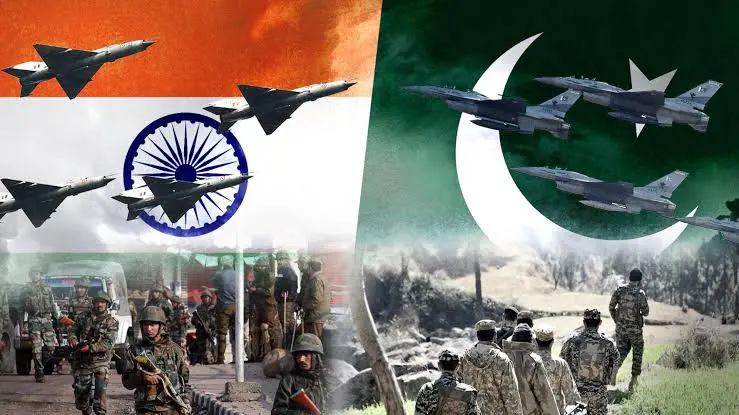Explore the India Jhelum Water crisis, its impact on Pakistan, and the Indus Waters Treaty’s role. Learn how India’s actions affect water security.

Understanding the India Jhelum Water Crisis: Impacts and Implications
The India Jhelum Water crisis has emerged as a critical issue for Pakistan, raising concerns about water security and bilateral relations with India. On April 26, 2025, India unexpectedly released water into the Jhelum River, causing flooding in Pakistan-occupied Kashmir (PoJK), particularly in Muzaffarabad. Yeh masla kyun itna ahem hai? This incident not only disrupted lives but also highlighted tensions surrounding the Indus Waters Treaty. In this blog post, we’ll explore the India Jhelum Water issue, its impacts on Pakistan, and what it means for the future.
Also Read
- Celebrating the Labour Day Holiday in Pakistan: A Tribute to Workers
- ACP Pradyuman: The Legendary CID Officer Loved Across India and Pakistan
- Exploring the BSF: The Backbone of India’s Border Security with Bangladesh
- EOBI Pension Latest Update 2025: Current Status and Future Expectations
- Latest on India Pakistan Current Relations: Tensions, Conflicts, and Hope for Peace
Background of the India Jhelum Water Incident
The India Jhelum Water crisis began when India released excess water into the Jhelum River without prior notice, triggering a water emergency in PoJK. According to reports, this action followed India’s suspension of the Indus Waters Treaty on April 23, 2025, after a terror attack in Kashmir. The Jhelum River, a vital waterway for Pakistan, supports agriculture and livelihoods in the region. The sudden release of water led to low-level flooding, exposing riverside communities to risk. For more details, read Dawn’s coverage of the incident.
The Indus Waters Treaty and Its Role
The Indus Waters Treaty, signed in 1960 and mediated by the World Bank, governs water sharing between India and Pakistan. It allocates the Jhelum, Chenab, and Indus rivers primarily to Pakistan, while India controls the eastern rivers. The India Jhelum Water incident raises questions about India’s compliance with the treaty. Indus Waters Treaty kya hai aur iska Jhelum ke paani se kya talluq hai? The treaty ensures predictable water flow, but India’s recent actions suggest a shift in policy. Learn more at the World Bank’s Indus Waters Treaty page.
Impacts of India Jhelum Water Release on Pakistan
The India Jhelum Water release had immediate and far-reaching consequences. Flooding in Muzaffarabad damaged infrastructure and disrupted daily life. Is paani ke ikhraj ne Pakistan ko kaisay mutasir kiya? Long-term, the incident threatens Pakistan’s agriculture, as the Jhelum River is crucial for irrigation. Social media posts reflect public anger, with some calling it a “humanitarian gesture gone wrong” due to Pakistan’s inadequate infrastructure. The crisis underscores the need for better water management.
Pakistan-India Relations and Water Disputes
The India Jhelum Water crisis is part of a broader history of water disputes. For instance, the Tulbul Project on the Jhelum River, restarted by India, has long been contentious. The recent incident escalates these tensions, with Pakistan considering diplomatic and legal responses. The India Jhelum Water issue could further strain relations, making cooperation on water sharing challenging. For an in-depth analysis, check The Express Tribune’s article on water disputes.
FAQs on India Jhelum Water
What is the India Jhelum Water incident?
The India Jhelum Water incident refers to India’s release of water into the Jhelum River on April 26, 2025, without warning, causing flooding in Pakistan, particularly in Muzaffarabad.
How does the Indus Waters Treaty regulate Jhelum River water?
The Indus Waters Treaty allocates the Jhelum River primarily to Pakistan, ensuring regulated water flow. India’s actions in the India Jhelum Water crisis may violate these terms.
What are the impacts of India Jhelum Water release on Pakistan?
The India Jhelum Water release caused flooding, damaged infrastructure, and raised concerns about agriculture and water security in Pakistan.
Why did India suspend the Indus Waters Treaty?
India suspended the treaty on April 23, 2025, following a terror attack in Kashmir, leading to the India Jhelum Water incident.
What can Pakistan do to address the India Jhelum Water issue?
Pakistan can pursue diplomatic talks, seek World Bank mediation, or enhance local infrastructure to mitigate the impacts of the India Jhelum Water crisis.
Conclusion
The India Jhelum Water crisis highlights the fragility of water-sharing agreements between Pakistan and India. The sudden release of water into the Jhelum River has caused immediate harm and raised long-term concerns about water security. Is maslay ko samajhne ke liye mazeed parhein! Stay informed by following credible sources, and share your thoughts in the comments to raise awareness about the India Jhelum Water issue.





